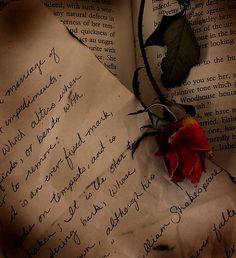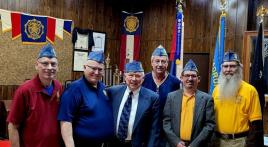Letters from the Battlefield – Love in War
By Laureen Sauls-Lessard
We all have family members or know of someone who has survived or been lost in the tragedy of war. If we are lucky, we find their letter bundles in boxes or suitcases in attics and closets after they have passed. Some are discovered in old books from thrift shops and antique stores. Their intimate letters fascinate us and reveal a wrinkle of time gone, bringing a tug at the heart and a tear to our eye. They are the elixir that kept them alive through the gruesome chaos in the theaters of war, and the promise of return for those on the home front. Some of the greatest confessions of love are written from the theaters of battle. Museum archives house some from our famous leaders. These letters are a just a few written to their soul-mates on the home front that survived to inspire us and testify that love transcends the fields of war no matter which side of the battle you are on.
It is hard to imagine historical figures like George Washington or Napoleon Bonaparte outside of the horrors of war, and in the throws of love. But they were both very much in love with their mates and put it in writing. Unfortunately after the death of her husband in 1799, First Lady Martha Washington destroyed all of the correspondence between she and George. Three letters from her husband were found after her death on May 22, 1802 beneath a desk drawer. Here is one of the letters dated June 23, 1775 from Philadelphia during the Revolutionary War:
My dearest,
As I am within a few Minutes of leaving this City, I could not think of departing from it without dropping you a line; especially as I do not know whether it may be in my power to write again till I get to the Camp at Boston—I go fully trusting in that Providence, which has been more bountiful to me than I deserve, & in full confidence of a happy meeting with you sometime in the Fall—I have not time to add more, as I am surrounded with Company to take leave of me—I retain an unalterable affection for you, which neither time or distance can change, my best love to Jack & Nelly, & regard for the rest of the Family concludes me with the utmost truth & sincerity.
Your entire,
Go: Washington
Napoleon Bonaparte was a feared ruler and an exceptional military strategist. He became Emperor of France in 1804 and consolidated an empire in Europe by 1810. He could not defeat Russia and abdicated, and was banished to the island of Elba in 1814. He resumed power again the following year to be defeated again at the Battle of Waterloo. His military campaigns did not impact his poetic hearts fervor. Napoleon was a prolific letter writer and wrote hundreds of love letters in his lifetime. If he were alive today, he would be the king of text and snapchat. From Paris in December of 1814, prior to his marriage to Josephine in 1796 he writes:
“I wake filled with thoughts of you. Your portrait and the intoxicating evening, which we spent yesterday, have left my senses in turmoil. Sweet, incomparable Josephine, what a strange affect you have on my heart! Are you angry? Do I see you looking sad? Are you worried?… My soul aches with sorrow, and there can be no rest for you lover; but is there still more in store for me when, yielding to the profound feelings which overwhelm me, I draw from your lips, from your heart a love which consumes me with fire? Ah! it was last night that I fully realized how false an image of you your portrait gives!
You are leaving at noon; I shall see you in three hours.
Until then, mio dolce amor, a thousand kisses; but give me none in return, for they set my blood on fire.”
In the last letter he would write to Josephine in 1814 from Elba, he writes:
“Never forget him who has never forgotten you and will never forget you.”
His wife Josephine was not as prolific or well versed as he would have liked and devoid of the passion he shared with her. He even wrote to her in reprimand:
“Soul of my life, write me by every courier, else I shall not know how to exist. I am very busy here. Beaulieu is moving his army again. We are face to face. I am rather tired; I am every day on horseback. Adieu, adieu, adieu; I am going to dream of you. Sleep consoles me; it places you by my side, I clasp you in my arms. But on waking, alas! I find myself three hundred leagues from you.”
Napoleon’s love letters to wife Josephine until her death on May 29, 1814 are legendary. His heart never recovered after her death. His final battle and defeat was in July 1815 at Waterloo. He was exiled to the island of St. Helena until his death in 1821.
Nothing is more tragic or inspiring as a soldier’s final pages of correspondence. On that same battlefield in Waterloo on the eve of his death, a British soldier named Major Arthur Rowley Heyland wrote to his wife Mary who is pregnant with his seventh child. Heyland lead the 40th Regiment against Napoleon’s army and was killed trying to protect the Le Haye Saint Farmhouse from surging French forces. A quote from the letter reads:
“….My Mary, let the recollection console you that the happiest days of my life have been from your love and affection and I die loving only you and with a fervent hope that our souls may be reunited hereafter and part no more.”
Heyland was buried on the battlefield at Waterloo. His remains were repatriated to a tomb in the Waterloo Museum’s garden in 1923. Heyland’a wife Mary carried the letter with her for forty years, until her death in 1858.
From a field at Camp Clark, Washington in July 1861, a Union Officer in the Civil War named Major Sullivan Ballou writes to his loving wife a week before his death. An excerpt reads:
“…..I cannot describe to you my feelings on this calm summer night, when two thousand men are sleeping around me, many of them enjoying the last, perhaps, before that of death -- and I, suspicious that Death is creeping behind me with his fatal dart, am communing with God, my country, and thee.
I have sought most closely and diligently, and often in my breast, for a wrong motive in thus hazarding the happiness of those I loved and I could not find one. A pure love of my country and of the principles has often advocated before the people and "the name of honor that I love more than I fear death" have called upon me, and I have obeyed.
Sarah, my love for you is deathless, it seems to bind me to you with mighty cables that nothing but Omnipotence could break; and yet my love of Country comes over me like a strong wind and bears me irresistibly on with all these chains to the battlefield.
The memories of the blissful moments I have spent with you come creeping over me, and I feel most gratified to God and to you that I have enjoyed them so long. And hard it is for me to give them up and burn to ashes the hopes of future years, when God willing, we might still have lived and loved together and seen our sons grow up to honorable manhood around us. I have, I know, but few and small claims upon Divine Providence, but something whispers to me - perhaps it is the wafted prayer of my little Edgar -- that I shall return to my loved ones unharmed. If I do not, my dear Sarah, never forget how much I love you, and when my last breath escapes me on the battlefield, it will whisper your name.”
Another Union Officer and Irish immigrant named James Love wrote 160 love letters to his fiancé Molly during the Civil War and they are archived in the Missouri History Museum. They are also combined in a book called My Dear Molly. The letters discuss the war, including activities in Missouri, battles, Love’s life as a soldier, and his time in Confederate prisons, in addition to detailing the love story of James and Molly. Spanning the entire Civil War period, the letters give a full account of both the ongoing conflict.
Civil War Confederate General Robert E. Lee wrote often to his wife, but was dull and only documented his daily routine. Their regular correspondence to each other was the measure of their concern and love for each other. An excerpt from a letter dated July 12, 1863 from Hagerstown, Maryland following the Battle of Gettysburg reads:
“The consequences of war are horrid enough at best, surrounded by all the ameliorations of civilization and Christianity. I am very sorry for the injuries done the family at Hickory Hill, and particularly that our dear old Uncle Williams, in his eightieth year, should be subjected to such treatment. But we cannot help it, and must endure it. You will, however, learn before this reaches you that our success at Gettysburg was not so great as reported--in fact, that we failed to drive the enemy from his position, and that our army withdrew to the Potomac. Had the river not unexpectedly risen, all would have been well with us; but God, in His all-wise providence, willed otherwise, and our communications have been interrupted and almost cut off. The waters have subsided to about four feet, and, if they continue, by tomorrow, I hope, our communications will be open. I trust that a merciful God, our only hope and refuge, will not desert us in this hour of need, and will deliver us by His almighty hand, that the whole world may recognize His power and all hearts be lifted up in adoration and praise of His unbounded loving-kindness. We must, however, submit to His almighty will, whatever that may be. May God guide and protect us all is my constant prayer.”
One of the great romances that lasted over 56 years was that between Winston Churchill and his wife Clementine. She referred to him affectionately as her “pug” and she his “cat”. They communicated regularly when they were apart and although had disagreements, they were very happy. In a letter dated January 23, 1935 Winston writes:
“My darling Clemmie,
… you wrote some words very dear to me, about my having enriched your life. I cannot tell you what pleasure this gave me, because I always feel so overwhelmingly in your debt, if there can be accounts in love... What it has been to me to live all these years in your heart and companionship no phrases can convey.
Time passes swiftly, but is it not joyous to see how great and growing is the treasure we have gathered together, amid the storms and stresses of so many eventful and, to millions, tragic and terrible years?…
With tender love from your devoted,
W.”
Another 20th century love letter written by President Ronald Reagan to his wife Nancy during their first Christmas in the White House reads:
Dear Mrs. R,
I still don't feel right about you opening an envelope instead of a gift package.
There are several much beloved women in my life and on Christmas, I should be giving them gold, precious stones, perfume, furs and lace. I know that even the best of these would still fall far short of expressing how much these several women mean to me and how empty my life would be without them.
There is of course my 'First Lady'. She brings so much grace and charm to whatever she does that even stuffy, formal functions sparkle and turn into fun times. Everything is done with class. All I have to do is wash up and show up.
There is another woman in my life who does things I don't always get to see but I do hear about them and sometimes see photos of her doing them. She takes an abandoned child in her arms on a hospital visit. The look on her face only the Madonna could match. The look on the child's face is one of adoration. I know because I adore her too.She bends over a wheelchair or bed to touch an elderly invalid with tenderness and compassion just as she fills my life with warmth and love.
There is another gal I love who is a nest builder. If she was stuck three days in a hotel room she'd manage to make it home sweet home. She moves things around - looks at it - straightens this and that and you wonder why it wasn't that way in the first place.
I'm also crazy about the girl who goes to the ranch with me. If we're tidying up the woods, she's a peewee power house at pushing over dead trees. She's a wonderful person to sit by the fire with, or to ride with or first to be with when the sun goes down or the stars come out. If she ever stopped going to the ranch I'd stop too because I'd see her in every beauty spot there is and I couldn't stand that.
Then there is a sentimental lady I love who eyes fill up so easily. On the other hand she loves to laugh and her laugh is like tinkling bells. I hear those bells and feel good all over even if I tell a joke she's heard before.
Fortunately, all these women in my life are you - fortunately for me that is, for there could be no life for me without you. Browining asked: 'How do I love thee - let me count the ways?' For there is no way to count. I love the whole gang of you - Mommie, first lady, the sentimental you, the fun you, and the peewee power house of you.
And oh yes, one other very special you - the little girl who takes a 'nana' to bed in case she gets hungry in the night. I couldn't and don't sleep well if she isn't there - so please always be there. Merry Christmas you all - with all my love.
Lucky me.
As long as there is war, soldiers and loved ones will find ways to profess their love from the battle trenches. It couldn’t be easier today from anywhere on the planet than the touch of an Emoji or click of an e-card button on a notebook or I-pad, zapping it from one continent to another in an instant. Modern day technology may offer instant communication with phone chat, text and email, but hopefully a few warriors and their soul-mates will take to the classic pen and paper letter to leave evidence of their love and passion, for us to find in ribbon tied packets and tucked in drawers or closet shelfs for future generations to find.




